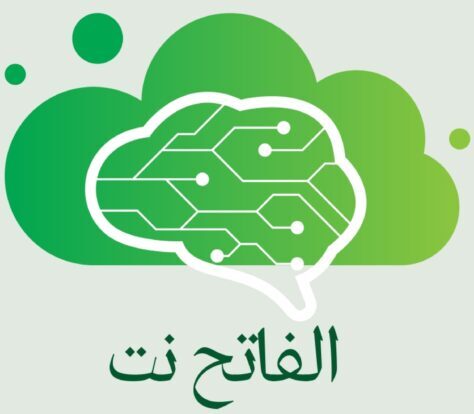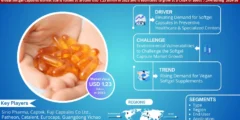Embarking on a medical career in the United States with a foreign degree is a journey that requires meticulous planning and a clear understanding of the intricate pathways within the U.S. healthcare system. For international medical graduates (IMGs), the process of practicing medicine in the USA involves navigating through a series of examinations, certifications, and licensure requirements that ensure a standard of competency and patient care consistent with the country’s healthcare standards.
This comprehensive guide sheds light on the steps, challenges, and opportunities faced by individuals with foreign medical degrees aspiring to contribute their skills and expertise to the diverse landscape of American healthcare. From examinations like the USMLE to the intricacies of residency matching, this guide aims to demystify the journey, offering valuable insights and guidance for those on the path to practicing medicine in the USA. Explore valuable insights and guidance through the ‘USMLE Prep Course‘ Differential Diagnosis offers to enhance your preparedness for the journey ahead.
Understanding Licensing Requirements
Practicing medicine in the USA with a foreign degree begins with a clear understanding of licensing requirements. Different states have unique criteria, often necessitating completion of the United States Medical Licensing Examination (USMLE) and additional state-specific mandates. Researching and familiarizing oneself with these prerequisites is crucial for a smooth transition into the U.S. healthcare system.
International medical graduates should be aware that licensing requirements may involve examination performance, specific clinical experience, and training criteria. A thorough comprehension of these regulations sets the foundation for a successful medical career in the USA.
Evaluating Foreign Medical Credentials
Having foreign medical credentials evaluated is a pivotal step in the process. Credentialing organizations, such as the Educational Commission for Foreign Medical Graduates (ECFMG), assess the equivalency of foreign degrees to U.S. standards. This evaluation ensures that aspiring physicians meet the necessary educational benchmarks.
Candidates should submit their academic transcripts, diplomas, and other relevant documents for a comprehensive evaluation. The ECFMG certification validates one’s medical education, making it an essential component of the overall journey.
USMLE Examinations: Key to Success
Success in the United States Medical Licensing Examination (USMLE) is critical for foreign-trained physicians. Comprising Step 1, Step 2 Clinical Knowledge (CK), and Step 2 Clinical Skills (CS), these exams rigorously assess medical knowledge and clinical skills. A comprehensive and strategic approach to USMLE preparation is essential for achieving competitive scores.
The USMLE is a licensure requirement and a significant factor in residency program admissions. In the eyes of residency program directors, excelling in these exams enhances the credibility of foreign medical graduates.
Completing a U.S. Residency Program:
Participating in a U.S. residency program is a transformative phase for foreign-trained physicians. Securing a residency position through the National Resident Matching Program (NRMP) or other pathways provides hands-on clinical experience and exposure to the intricacies of the U.S. healthcare system.
Completing a U.S. residency program is a mandatory step toward obtaining a medical license. It offers a structured environment for professional growth and prepares physicians for independent practice in the American healthcare landscape.
Obtaining ECFMG Certification
Achieving ECFMG certification is a significant milestone in the journey of foreign-trained physicians. This certification validates that individuals have met the educational and examination requirements to pursue residency training in the USA. ECFMG certification is a prerequisite for participating in the NRMP and securing residency.
The certification process involves thorough verification of medical education credentials and completing the required examinations. ECFMG certification is an essential credential that opens doors to the following stages of the medical career pathway.
Navigating the Residency Match Process
Navigating the residency match process is pivotal for foreign-trained physicians. This process involves researching and applying to residency programs that align with one’s career goals and preferences. Preparing a compelling application, including letters of recommendation and a personal statement, is crucial for standing out in a competitive pool of candidates.
Interview skills play a significant role during the match process. Effective communication and articulation of one’s motivations and qualifications are key factors that influence program directors’ decisions. Foreign-trained physicians should proactively seek guidance on the match process’s intricacies.
Visa and Immigration Procedures
Understanding visa and immigration procedures is imperative for foreign-trained physicians aiming to practice in the USA. The appropriate visa, such as the J-1 or H-1B visa, is essential for completing residency training and, eventually, practicing medicine independently. Navigating the intricacies of U.S. immigration law, including visa application timelines and documentation requirements, is vital for a seamless transition.
Foreign-trained physicians should engage with experienced immigration professionals or legal advisors to ensure compliance with regulations and optimize their chances of securing the necessary visas for their medical careers in the USA.
Networking and Professional Integration:
Actively, networking within the U.S. medical community is a strategic approach for foreign-trained physicians. Attending conferences, workshops, and medical events provides opportunities to connect with professionals, mentors, and potential colleagues. Building a robust professional network enhances the likelihood of securing valuable insights, mentorship, and potential career opportunities.
Professional integration extends beyond networking to embracing cultural nuances within the U.S. healthcare system. Understanding the healthcare culture, patient expectations, and communication styles contributes to successful professional integration and fosters positive interactions with colleagues and patients.
State Licensure and Board Certification
Upon completion of residency training, foreign-trained physicians must obtain state licensure to practice independently. State medical boards have specific requirements, including passing additional examinations and fulfilling practice hours. Board certification in one’s chosen medical speciality further validates expertise and enhances professional credibility.
Navigating state licensure procedures involves meticulous attention to documentation, application timelines, and adherence to state-specific regulations. The process culminates in issuing a medical license, granting physicians the authority to practicing medicine in a specific state.
Continuous Learning and Professional Development
Committing to continuous learning and professional development is an ongoing responsibility for foreign-trained physicians practicing medicine in the USA. Staying updated on medical advancements, continuing medical education (CME), and engaging in scholarly activities contribute to maintaining and enhancing medical knowledge and skills.
Professional development opportunities, such as attending conferences, workshops, and specialized training programs, empower physicians to deliver high-quality healthcare. Cultivating a mindset of lifelong learning is integral to the sustained success of foreign-trained physicians in the dynamic landscape of U.S. medicine.
Embarking on a medical career with a foreign degree in the USA demands dedication, thorough preparation, and resilience. By following this comprehensive guide, international medical professionals can navigate the complex journey and ultimately contribute to the diverse healthcare landscape in the United States.
For more informative blogs keep visiting alfatehnet





